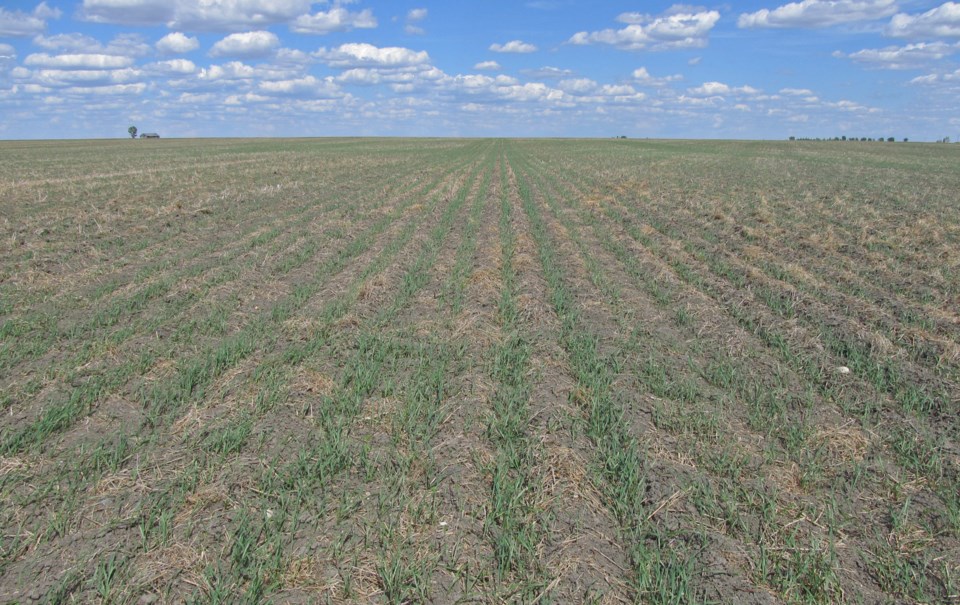The federal election is over, and Canada has a new Government. It will look a lot like the last government, but there are some significant differences for agriculture. Whether you were cheering for the red team, the blue, orange or even the green, it is now incumbent upon all parts of agriculture to come together and work with the government given to us by the people.
Мэ
There are some good places to start. The “Barton Report”, led by the now Ambassador to China, outlined the key role that agriculture will play in the development of the Canadian economy. Based on the Barton Report this government has set a target of increasing Canada's agri-food exports from $55 billion in 2015 to at least $75 billion by 2025. Barton outlined how we can move from the fifth largest agricultural exporter to the second largest within the next ten years. These are ambitious goals.
Мэ
Accomplishing these goals is going to take a lot of work. For example, we need to fight for the right trading environment. This is not going to be a simple task in the new age of protectionism. We need to ensure that we have regulations in place that foster investment in research, innovation and new technology. This may not be easy with activist opposition to many of the tools of modern agriculture like pesticides, fertilizers and biotechnology.
Мэ
There is the potential for a rocky road ahead from an agriculture and trade policy perspective. There are no Members of Parliament (MPs) on the government benches from the largest grain growing regions of the country. The House of Commons, which many saw as a House divided between rural and urban seats before the election, will be even more divided when it resumes sitting. Who will speak for rural Canada and agriculture when the Liberal Caucus meets to discuss legislation and policy? Who on the Government side of the aisle will remember the Barton recommendations, and how to accomplish them, when advocates call for the removal of key tools that are helping farmers compete globally? How do we ensure Members of Parliament and Cabinet Ministers come to understand the needs and value of our industry? How do we communicate, to Parliamentarians, agriculture’s story of sustainable production?
Мэ
These are not easy questions to answer. In part it is the role of Members of Parliament from agriculture-based ridings to ensure that these messages are delivered to the Cabinet. I have a few options to suggest to MPs from agricultural ridings. For example, adopt a city MP from another Party to take out to meet with your constituents in the field (I mean that literally). Value chain organizations can help organize this kind of outreach and if that sounds like an offer, it is. It would also be good too see the revitalization of an all-party rural caucus.
Мэ
But voices from the opposition benches are not going to be enough. Farm and industry organizations have a responsibility as well. We as an industry are going to need to come together and work to ensure that misunderstandings about modern agriculture are not imbedded in legislation and regulation.
Agriculture value chains can help bring together federal and provincial governments, commodity groups and farmers to address the immediate challenges facing agriculture, including activist threats to modern agricultural tools, growing nationalism and protectionism and the need to support investment in emerging technology.
Мэ
There is a lot at stake for agriculture in the next few years. Upcoming is a mandatory review of the Pest Control Products Act, which spells out how pesticides are evaluated, registered and regulated in Canada. Agriculture and Agri-Food Canada has already begun a review of the Canada Grain Act and the Canadian Grain Commission. Canada also needs to establish the regulatory framework for new plant breeding techniques like CRISPR. Other policy initiatives, like the National Food Policy, have the potential to have a significant impact on commercial agriculture. Getting these regulatory modernization projects right will help set the environment in which agriculture can accomplish the goals set out by Barton. If instead, regulatory changes reflect misunderstandings of modern agricultural practices our industry could be set back a generation.
Мэ
Agriculture also needs to work with this government to combat growing protectionism internationally. We need to position industry and government resources in a way that proactively tries to prevent the next market access barrier from occurring. This can only be accomplished if the government finds us willing to be a productive partner.
Мэ
Being a productive partner does not mean that we should not speak out loudly if policies are brought forward that would harm agriculture. It is critical that elected officials always hear the truth from the agriculture sector. But our voice cannot be seen to be always negative. We need to provide the opportunities for urban MPs and cabinet Ministers to get to know modern agriculture a bit better and offer positive policy options that will move this vital industry forward.




